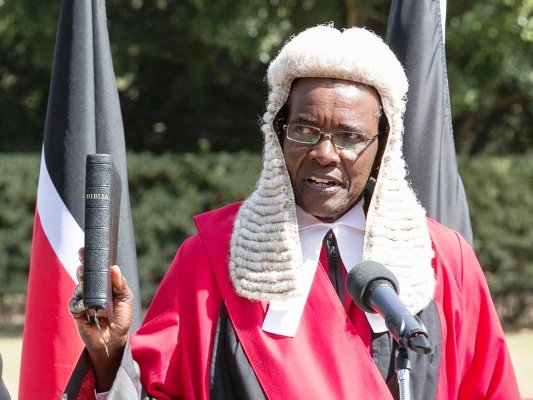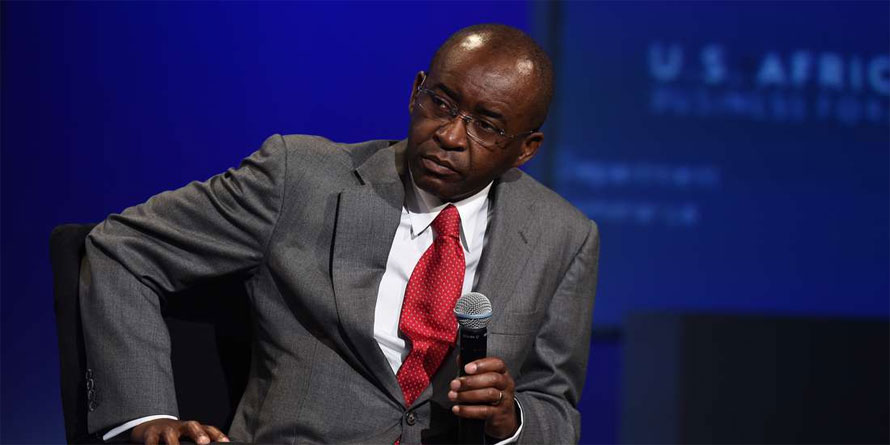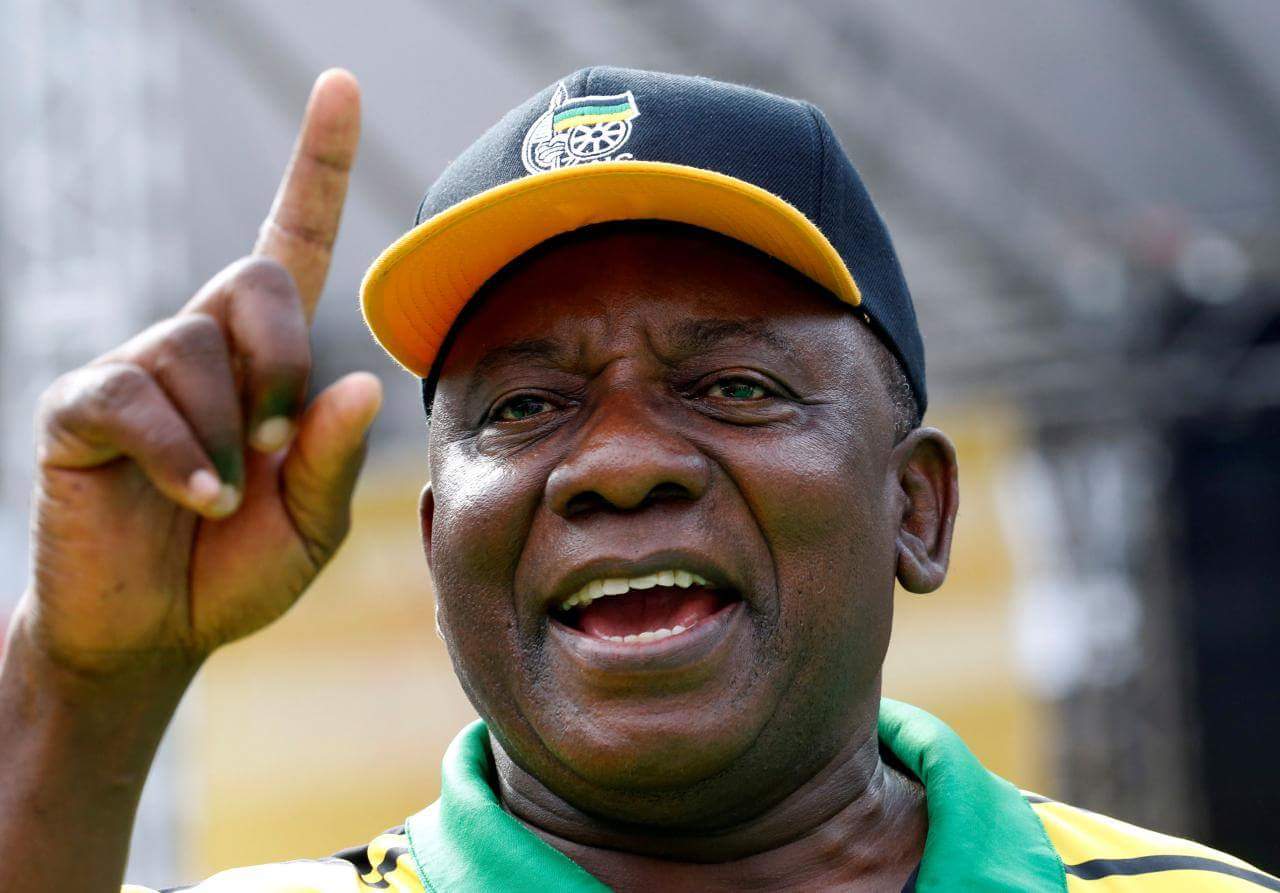David Maraga, Kenya’s Chief Justice and three of his colleagues on Friday created history by annulling the August presidential election.
It is unprecedented in Africa for an opposition court challenge against a presidential election to succeed.
Kenyans and East Africans at large have praised Justice Maraga for having the courage to rule against the man who appointed him, President Uhuru Kenyatta, and for restoring their faith in the independence of the judiciary.
Several Kenyan papers have referred to Justice Maraga as a person of integrity, which they attribute to his being a devout Seventh-day Adventist.
He reportedly told an interview panel that if appointed Chief Justice, he would never preside over a case on a Saturday, a day of rest and worship for members of the Adventist faith.
Some have speculated that this may have been the reason the first sitting of the presidential election petition was held on a Saturday night, after the Sabbath had ended.
It is reported that while being vetted for his job, he was confronted with allegations that he had taken bribes.
He surprised the public by standing before TV cameras and swearing on a Bible that he had never taken a bribe in his life.
“Get me that Bible. In the name of God and the creator of the entire universe, I have never taken a bribe and I will never take a bribe,” he told a stunned Judges and Magistrates Vetting Board chairman Sharad Rao and his members.
“In obedience to God’s Command and Will, and guided by the Constitution, to serve humanity, and Kenyans in particular, with dedication, honesty and integrity, striving at all times to uphold the rule of law and do justice to all.” This was Maraga’s objective when he presented his CV before the Judicial Service Commission interview panel a year ago for the post of Chief Justice and President of the Supreme Court, which he now holds.
“I am a God fearing person who believes in, and endeavours to do, justice to all irrespective of their status in society,” he said in his personal profile he presented to the JSC.
“I have a great passion for upholding the rule of law, which is an essential ingredient for social justice, political stability and economic development. I value people as a core resource and have had great pleasure and success in building teams towards effective justice delivery.”
‘Not A Government Project’
Justice Maraga, 66, graduated as a lawyer 40 years ago from the University of Nairobi, before going into private practice.
He was appointed a judge in 2003 and rose to join the Court of Appeal in 2012.
Married with three children, Maraga describes himself as an elder and one of the Bible-Study leaders of the SDA Church.
Last year, following the early retirement of former Chief Justice Willy Mutunga, he beat off stiff competition from 10 other prominent judges, legal practitioners and academics to be nominated by the Judicial Services Commission (JSC) to become Chief justice.
However, earlier this year he is reported to have rebuked the man who appointed him – President Kenyatta.
Mr Kenyatta, while campaigning for re-election in Justice Maraga’s home area, had told people that they should vote for him because his government had given “their son” a job.
The chief justice, through the JSC, stated that he was not a government project.
The president initially said he would accept the Supreme Court’s ruling, although he did question why “six people [the judges] have decided that they will go against the will of the people”.
However, he later said that the judges had been “paid by foreigners and other fools”.
“[Chief Justice] Maraga and his thugs have decided to cancel the election. Now I am no longer the president-elect. I am the serving president… Maraga should know that he is now dealing with the serving president.”
Despite the implied threat, the president does not have the power to sack the chief justice, whose single term expires when he turns 70.
Pro-Poor Man
Maraga has supported Moi Children’s Home since the 1980s and St. Barnados Children’s Home, Nairobi since 1996.
“I have and continue to educate orphans and disadvantaged children, some of whom I have supported up to university level,” he said.
He has helped build Churches at Mwereni in Kinango area of Kwale County; Yumbuni in Mutito Andei; Mutituni in Machakos County; Simerero in Siaya County and others in Nakuru, Nyamira and Kisii Counties.
His Career
As a senior legal professional with extensive experience in the Bar and on the Bench, and with a nascent but growing interest in academia, CJ Maraga was admitted to the Roll of Advocates 39 years ago, and has served as judge of Kenya’s two Superior Courts for over 14 years.
He holds a Master of Laws Degree (LLM) from the University of Nairobi; a Bachelor of Laws Degree (LLB) from the same University, and a Diploma in Legal Practice from the Kenya School of Law, leading to his admission onto the Roll of Advocates in October 1978. He is also a member of the Chartered Institute of Arbitrators, London and the Law Society of Kenya.
Both in legal practice and on the Bench the CJ has made a significant contribution to local and international jurisprudence as demonstrated in the Anguka, Julie Ward, Choge and Mohammed Harshi Cases, among others detailed herein below. “As at 2012, about twenty five (25) of my judgments had been reported by the National Council for Law Reporting and many more are pending publication,” he says.
Among the cases he has handled that have had a direct bearing on the rule of law include the Court of Appeal ruling on the Executive of Kisumua & Others v. Ann Atieno Adul & Others, CA Nos. 17 & 18 of 2015 (Consolidated).
It was precedent setting constitutional authority on impeachment of County Assembly Speaker.
“This decision helped to minimise impeachment motions in County Assemblies.” In 2013, he nullified a case involving Bungoma Senator Moses Wetang’ula and Musikari Kombo on grounds of bribery.
“In the D. Royal Media Services Ltd & Others vs Attorney General & Others, CA No.4 of 201, this decision helped to settle a major Constitutional Freedom of the Media Regional Terrestrial Broadcasting Digital Migration and Broadcasting Signal Distribution Licensing,” he writes in his personal profile.
He also handled an election petition filed involving Mombasa Governor Ali Hassan Joho; HC Election Petition No. 1 of 2005—Hassan Joho vs Hotham Nyange & Others—Precedent setting on, inter alia, the standard of proof in Election Petitions.
Besides his jurisprudence development, the CJ is also an author. He authored a Chapter on “Scrutiny in Electoral Disputes: A Kenyan Judicial Perspective,” in the Book: ‘Balancing the Scales of Electoral Justice: Resolving Dispute from the 2013 Elections in Kenya and the Emerging Jurisprudence.’ Edited by Dr Collins Odote and Dr Linda Musumba; February 2016.






I Wish I Was Born In An Able Family I Woud Have Studied Law Heartedly And Be The Next Maraga In My Country And Africa At large, I Really Admire & Cherish You Supreme President, May God Bless U Again & Again!